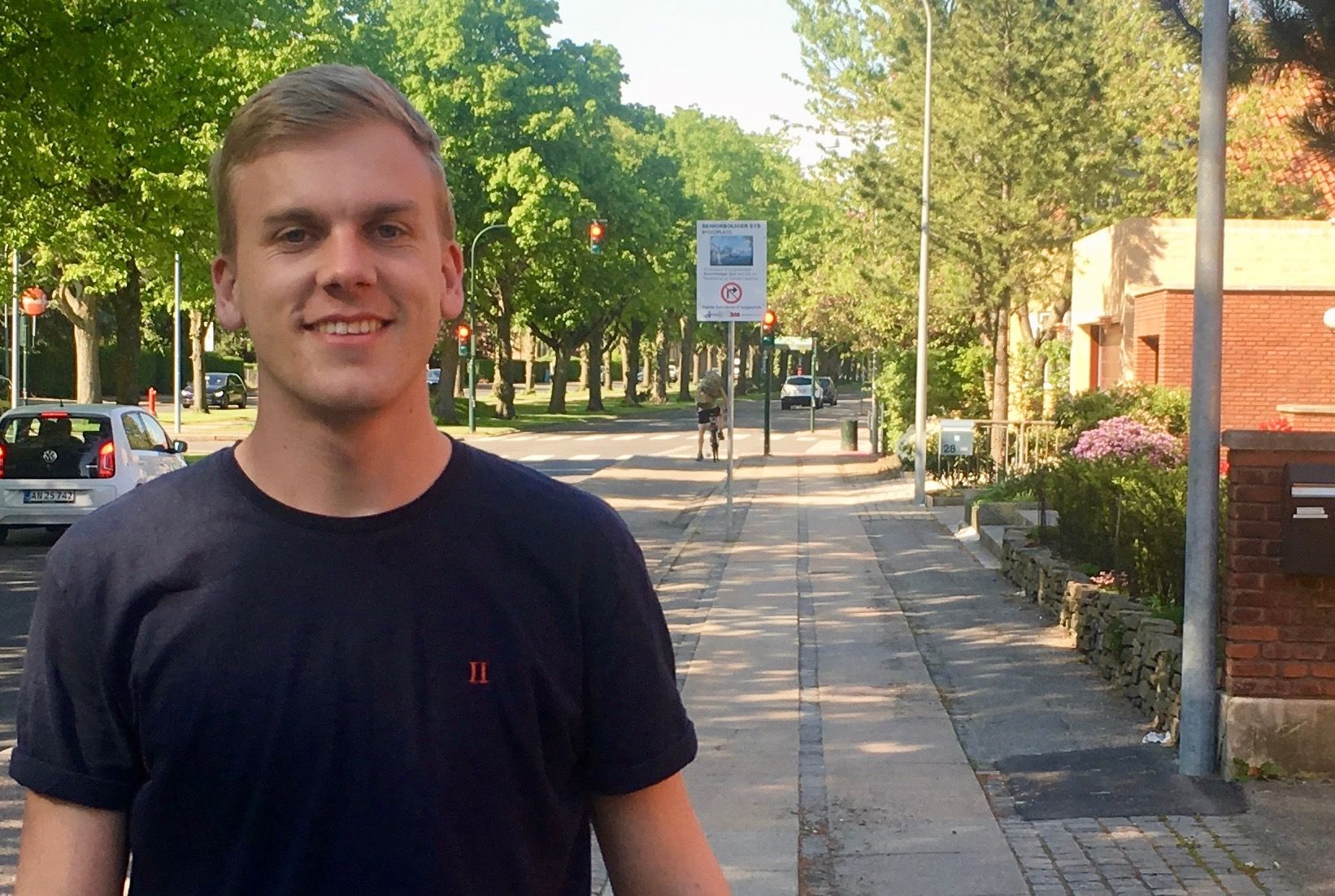Where are you from?
I was born in Korsør in the western part of Zealand, but have lived several years abroad growing up in Italy, Poland and the US. Before I moved to Copenhagen to start at CBS, I lived in Odense for around four years.
Where and what are you studying?
I am currently finishing up the second year of my bachelor’s degree in International Business at Copenhagen Business School.
You will be studying a semester at University of Pennsylvania after summer - why did you decide to go on exchange? And why did you choose UPenn?
Having lived abroad in the past, I am very familiar will all the benefits of going abroad. Although it is hard to put words on it, living abroad just builds your character and provides you with so many amazing experiences. Therefore, the option of combining my studies with a semester abroad was, to me at least, kind of a no-brainer.
Having decided that I wanted to go on exchange, I had the option of choosing one of CBS’ partner universities or apply as a free mover. I opted to the first option since that option would save me from having to pay a hefty tuition fee, and simplify the time-consuming processes slightly.
From CBS’ list of partner universities I prioritized going to a top university and was fortunate enough to be given the opportunity to go to the Wharton school at UPenn, which was my top priority.
What expectations do you have for the semester abroad?
I expect my semester abroad to be a challenge, but one that I am looking forward to. I expect the academic level to be higher than at CBS and that the competitive climate among students is even more intense. The way classes are conducted is also vastly different from what I am used to in Denmark, which will take some getting accustomed to. Although I know that the semester is going to be challenging in terms of academics, this is also one of the things that I am looking forward to experiencing and one of the main reasons why I chose to apply to UPenn.
Another thing that I expect to be an interesting change from my ordinary life is the fact that I will be living in a dorm on campus. I expect this to be an awesome experience and a really good way to connect with new people quickly, which will be extremely nice given that I will be away from my friends and family in Denmark.
From a social point of view, I am looking very much forward to meeting people from all over the world and make friends from vastly different backgrounds from my own.
You are currently in the middle of the preparation process - what are the most important, difficult, and time-consuming parts in your opinion?
I think the most important thing to do, is to try to stay organized and keep track of all the things that have to be completed.
It is hard to single out the most important and difficult aspects of the process. Obviously, some parts, such as the application to the university and for the visa, have higher priority than others, but ultimately all the parts of the process must be completed for the semester to be a success.
All parts of the preparation process are very time-consuming, more so than I anticipated. It is by no means unmanageable, but I would advise everyone to start the process as early as possible. Visa applications, course selection, insurance matters, health check-ups, scholarship applications, travel arrangements, accommodation and credit transfers all have to be dealt with somewhat simultaneously, which can be a mouthful if you’re also juggling your regular studies and perhaps a job on the side. The tasks aren’t difficult per se, it just requires a certain amount of planning and proactivity in order to make the process as easy for yourself as possible.
Having said all that, thousands of students go on exchange every year and they all have to go through the same process (more or less). This means that there is plenty of help to be found from your friends, counsellors, or online, whatever the issue might be.
Studying abroad is expensive and therefore a factor sometimes hindering students from going, so how are you planning to finance your stay?
Studying abroad is definitely expensive. On top of that, entering on a student visa, and therefore not being allowed to work, limits you in the ways you can cover your expenses.
As I mentioned earlier, applying through a CBS partner university means that I am not required to pay a tuition fee. Nevertheless, my semester abroad is still going to set me back quite a lot.
I am hoping to finance some of my expenses through scholarships (NSAC hosts a great scholarship workshop several times a year, if you want some inspiration). If that does not cover it, I guess I’ll be having a busy summer working to cover my expenses before I leave in August. In my eyes though, the investment will be well worth it in terms of the experiences I will get back throughout the semester.
